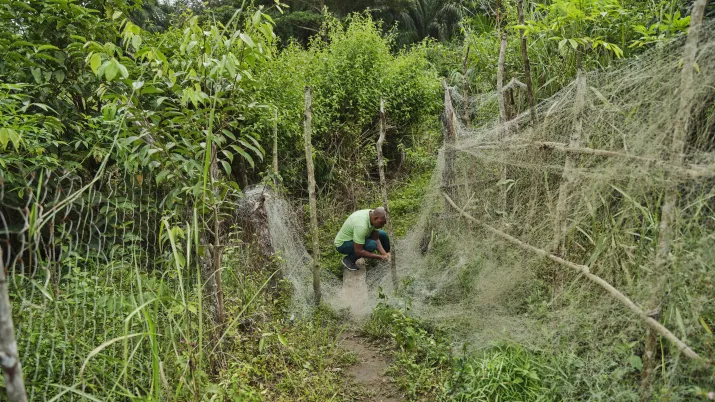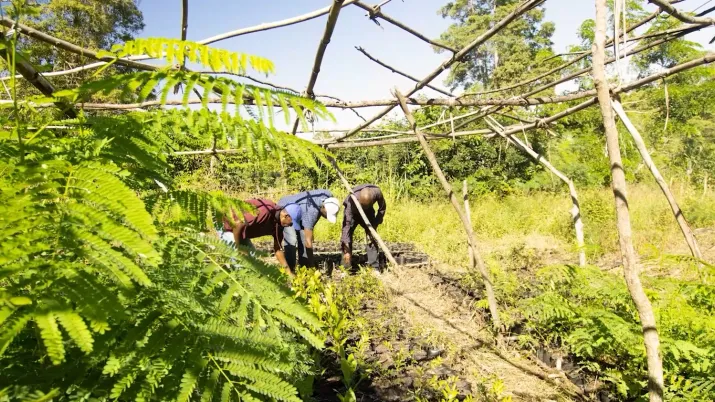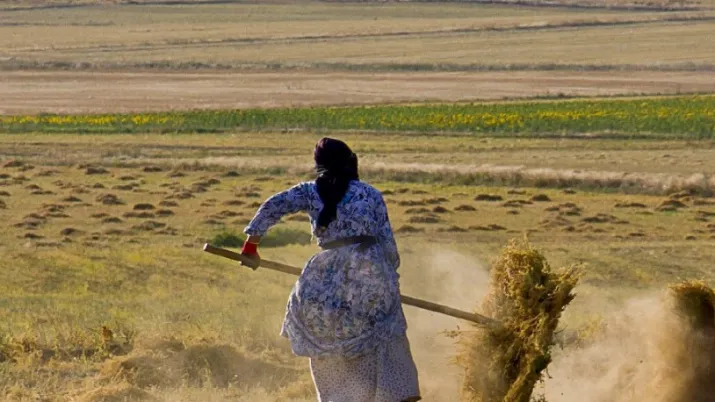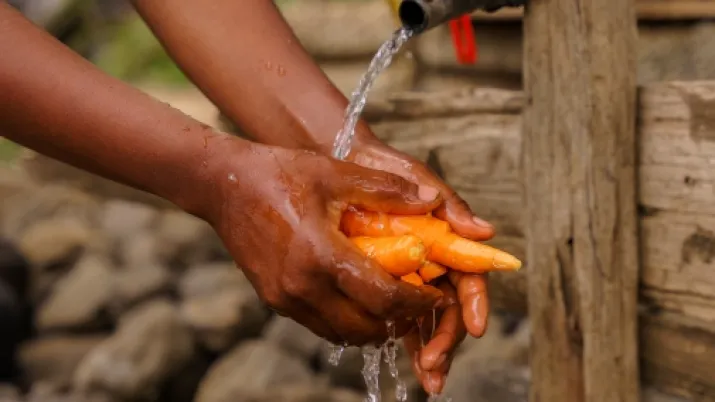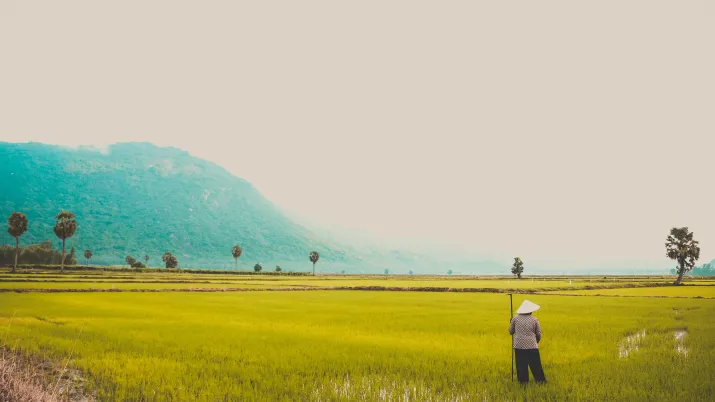Share the page
WASOP - West Africa Sustainable Ocean Programme
Project
Published on
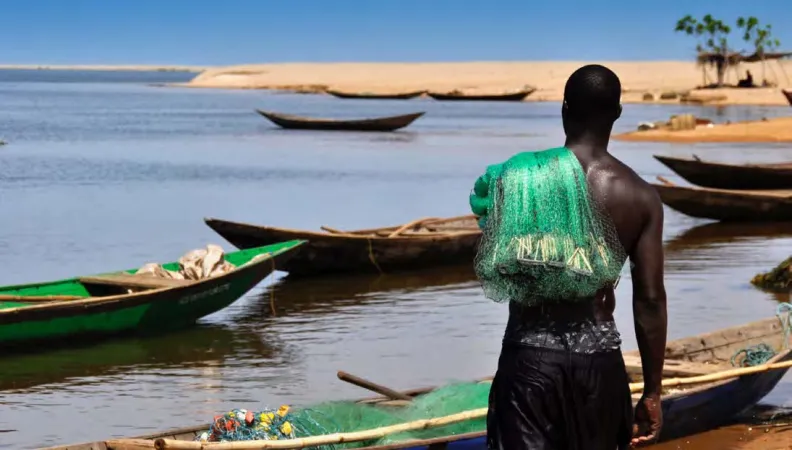
-
Project start date
-
Status
Ongoing
-
Project end date
-
-
Financing amount (Euro)
-
28.5m on a total of 59m
-
Country and region
-
Benin, Cape Verde, Ivory Coast, Gambia, Ghana, Guinea, Guinea-Bissau, Liberia, Mauritania, Nigeria, Senegal, Sierra Leone, Togo, Africa
-
Funders
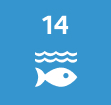
WASOP supports the development of a sustainable and inclusive blue economy and the preservation of marine resources. It is addressing the challenges of overfishing, biodiversity conservation, climate change and sustainable development in West Africa.
A regional programme to preserve marine resources and promote the sustainable blue economy
The ocean is the future of West Africa. The West Africa Sustainable Ocean Programme (WASOP) connects a wide range of stakeholders to support the implementation of an integrated and sustainable management of marine and coastal resources in West Africa. It also promotes inclusive and competitive economic growth.
55% of regional GDP comes from ocean-related activities
There are major challenges in this region where more than a third of the population lives in coastal areas and ocean-related activities account for more than 55% of regional GDP. The WASOP programme thereby aims to address critical challenges, such as illegal, unreported and unregulated (IUU) fishing, biodiversity loss, climate change, and the limits of the legal and institutional frameworks. The project is based on three complementary pillars and a seascape approach:
- Strengthen ocean governance, with a focus on sustainable fisheries
- Promote a sustainable and inclusive blue economy
- Strengthen the preservation of marine and coastal ecosystems, working with local communities
Expertise France is responsible for the coordination and implementation of the second component covering the sustainable and inclusive blue economy.
A programme at the crossroads of strategic issues for Europe and Africa
WASOP is aligned with the Global Gateway’s objective of supporting public-private partnerships for the sustainable development of natural resources and Nature-based Solutions. WASOP is central to the “Global Gateway 360-degree” approach, based on the priorities of connectivity, sustainability and infrastructure development, as it includes a general mobilisation of sectors related to the oceans, seas and coasts. This covers both marine and land-based operations to ensure that the action is consistent and comprehensive.
In addition, the programme is aligned with key international priorities, such as the African Union’s Agenda 2063 which recognises the blue economy as the “future of Africa”. It also fits in with the European Union’s Ocean Pact.
An implementation based on a multi-stakeholder partnership
A programme integrated into regional governance
The programme’s governance includes a political partnership with ECOWAS, which also co-chairs regional steering committees and ensures alignment with regional policies and priorities. Regional development banks are also key partners of the programme, including the West African Development Bank (BOAD) and the ECOWAS Bank for Investment and Development (EBID).
Expertise France is coordinating an extensive network of international, national and local organisations
In addition to the implementation of the second pillar of the project on the blue economy, Expertise France is responsible for the overall inter-pillar coordination of the programme from Cape Verde with the management of the “Blue Hub”. Through this role, Expertise France is leveraging its expertise as a coordinator and its extensive experience in coordinating large-scale European programmes.
Expertise France’s action for a sustainable and inclusive blue economy
Expertise France is responsible for the overall coordination and implementation of the activities to promote a sustainable and inclusive blue economy.
The activities include:
- Implementing a technical assistance facility (Blue Facility) for national and regional public and private institutions to:
- Strengthen regional and national policies on the blue economy, regulatory frameworks and institutional capacities
- Facilitate private sector participation in sustainable ocean industries and promote inclusive and sustainable economic growth by facilitating access to sustainable financing mechanisms
- Creating and supporting the coordination of thematic practitioners’ networks to:
- Mobilise stakeholders throughout the programme and facilitate partnerships by creating thematic stakeholder coalitions (for example, finance and entrepreneurship in the blue economy)
- Widely raise awareness of the potential of the sustainable blue economy
- Capitalise on and share good practices (for example, webinars, a web portal for information sharing and training)
- Financing for pilot activities in the field of the sustainable blue economy: a€10 million call for projects to support local projects with a high potential for replication and/or scaling up, likely to mobilise additional financing, including by the private sector, and promoting partnership approaches (multi-stakeholder, multi-sector and multi-scale)
Activities of the other two pillars
1. Ocean governance
- Support sustainable economic growth by significantly reducing illegal, unreported and unregulated fishing (IUU fishing), conserve biodiversity and improve the well-being of coastal communities for future generations
- Promote scientific advice to improve the management of shared stocks of small pelagic fish
- Facilitate the strengthening and application of regional fishing governance, policies and multi-stakeholder cooperation
- Comprehensive knowledge and empowerment in the field of small-scale fishing
2. Protection and restoration of marine and coastal ecosystems
- Develop innovative scientific knowledge, as well as management and financing tools, for an effective management of marine protected areas (MPAs)
- Support the efforts of West African countries to achieve the 30x30 goals (Global Biodiversity Framework) by assisting with the creation of a representative, coherent and operational network of marine protected areas
- Promote the dynamics of transboundary marine conservation and the creation/extension of transboundary MPAs, extended to the deep water areas of exclusive economic zones (EEZs) and international waters, in accordance with the treaty on biodiversity (BBNJ)
- Support the involvement of local stakeholders and communities to conserve biodiversity and strengthen the resilience of communities through a mechanism for small grants (total budget: €10 million)
Resources for download
Sustainable Development Goals
SDG14 - Life below water
Conserve and sustainably use the oceans, seas and marine resources for sustainable development

On the same topic
Kopekoba
Ongoing
2025 - 2028
Funders : Agence Française de Développement, European Union, Central African Forest Initiative (CAFI)
PMSAN 2: Multisectoral Food and Nutritional Security Programme II
Ongoing
2024 - 2028
Funders : European Union, Agence Française de Développement
In the news
Agriculture | “We’ve targeted family farming because it’s everywhere and it’s essential”
Published on February 28, 2024



